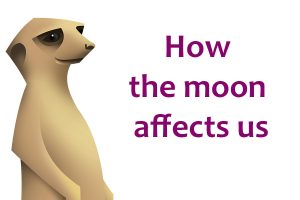How the Moon Affects Us

The idea that the phases of the moon are linked to the human psyche is one of the oldest and most pervasive examples of folk lore and mythology. It is woven into the fabric of our classic literature, poetry and music. Even today, a surprising number of people believe that our deepest emotions and mental states are influenced by the lunar cycle, and there are plenty of police officers, doctors, nurses and prison guards who would swear blind they’ve seen evidence of it in their everyday lives. But is the lunar effect real? How and why does it work? Humans have spent thousands of years discussing the lunar effect in stories and legends, and the last 40 years documenting it in the academic literature. So what’s the verdict? How does the moon affect us?
In it’s simplest form, the Werewolf exemplifies our most primitive understanding of a link between human behaviour and emotion and the moon. It captures our idea that during the full moon, man becomes wild, violent and instinctive, a reversion to a more basal, less civilised version of ourselves. This is probably the most pervasive aspect of the myth, that the moon controls human aggression, impulsivity, violence and mood. But the lunar effect has also been proposed for a range of scenarios so broad it will make your mind boggle. A quick google search will tell you that the moon controls our fertility and reproduction, influences violent crime, suicide and even traffic accidents, affects seizures, blood loss, sleep quality and even our political leanings. All of this begs the question, how and why might such a mechanism exist?
Continue reading